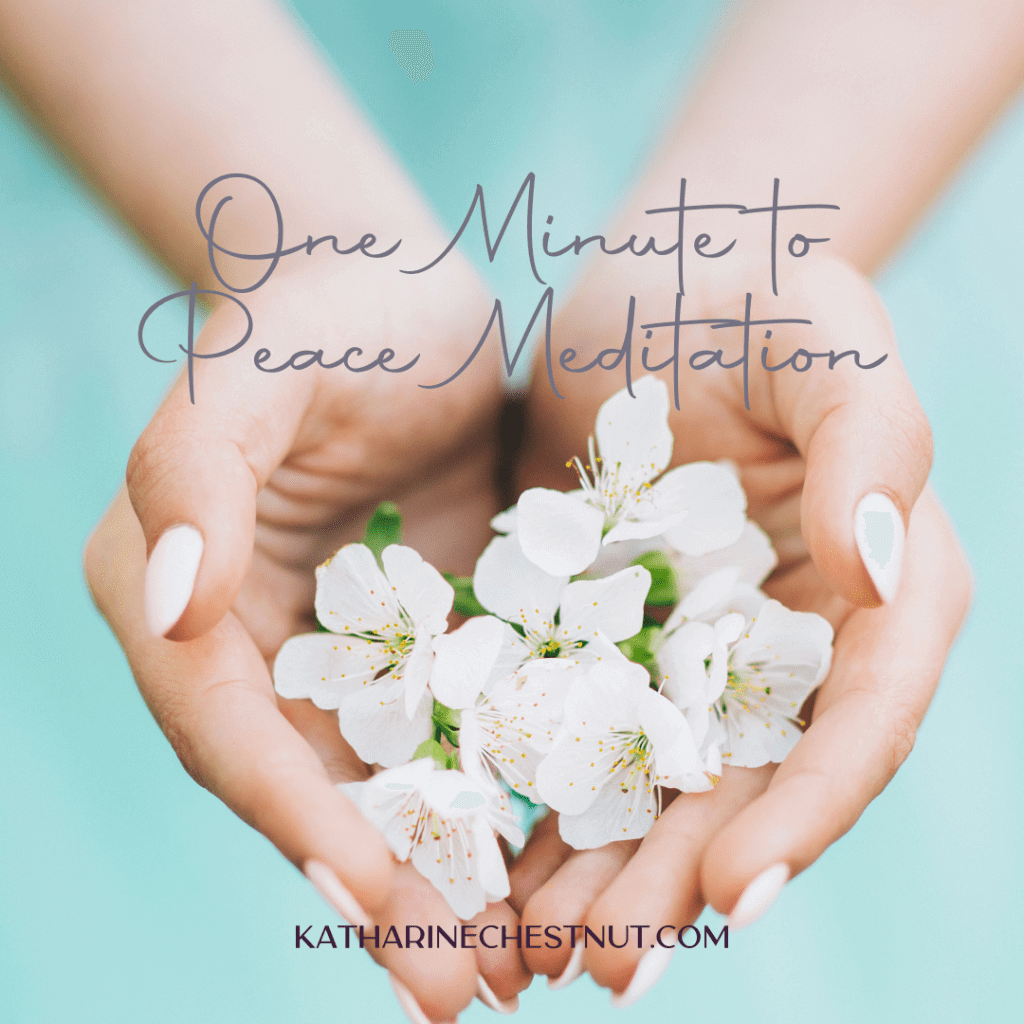
Why Mindfulness Can Be Challenging
When I started on the path of recovering from an abusive marriage, I looked for anything that would help ease my cPTSD. I read books (oh so many books), signed up for the Narcissistic Abuse Recovery Program (NARP), and came across Insight Timer. Along the way, I discovered that many of the things that helped fell into the category of mindfulness:
- nature walks
- mini-breaks
- authentic journaling
- single-tasking
- meditation
As a reminder, mindfulness is the practice of cultivating self-awareness and paying attention to the present moment. And while it can be a powerful tool for personal growth and stress reduction, many people find it challenging to maintain a consistent practice.
I am honored to have come a long way in my own journey. I didn’t know what being mindful was and why I should do it, let alone that I needed to be more mindful when I started out years ago. As I became more grounded, I discovered how powerful using different mindful practices were, not just to help with healing my cPTSD, but in my everyday life. I started creating my own guided meditations and becoming an author and mindfulness coach. As it is said, ‘physician, heal thyself’.*
* No, I’m not a physician. Nor a therapist. I am a behavior kinesiologist, mindfulness coach and meditation teacher.
Obstacles to Mindfulness
One reason that we may find this difficult is that mindfulness requires a large amount of self-acceptance and self-awareness of our thoughts and emotions that can be hard to acknowledge. And I’ll freely admit it was tough for me starting out.
According to a Psychology Today article, 33% of people struggle to find time for mindfulness, while 31% find it challenging due to a lack of proper guidance. Furthermore, Mindful.org suggests that a mindfulness practice can be particularly difficult when an individual is undergoing stress, as our brains have a hard time learning or doing something new under duress.
Despite these challenges, the numerous benefits of mindfulness are well-documented, including improved emotional regulation, cognitive abilities, and strengthened relationships. By understanding and addressing the factors that make developing a habit part of daily life, we can crush these barriers and incorporate mindfulness into our daily lives.
Understanding Mindfulness
As I’ve mentioned before, mindfulness is the practice of maintaining a non-judgmental state of heightened awareness of one’s thoughts, emotions, and experiences in the present moment. It can be achieved through various techniques, such as meditation, yoga, and mindful breathing. Although there are an abundance of benefits, such as reduced stress, improved focus, and better emotional regulation, it may also present certain challenges.
One of the main reasons being mindful can be challenging is that it requires dedication and consistent practice. According to a Psychology Today article, some people struggle to find time for mindfulness, while others have difficulty sticking to a routine. Developing a regular mindfulness practice may not come naturally to everyone, but it is essential to fully experience its benefits.
As mentioned above, another factor is the increased self-awareness and self-acceptance being mindful demands. For those struggling with these skills, mindful awareness can be an uncomfortable experience initially. As Psychology Today explains, self-awareness and self-acceptance are integral aspects of mindfulness, and overcoming this hurdle requires patience and persistence.
Our brains view this as a survival threat due to our being present and hyper-aware of each moment. As Daily Life explains, humans have evolved to seek predictability, and mindful exercises can seem counterintuitive to this instinct. Overcoming this innate resistance is essential in order to truly benefit.
Listen to my meditations on the free Insight Timer app OR YouTube 🧘
Common Challenges

Lack of Time
One of the most common obstacle people experience when trying to practice mindfulness in their everyday life is finding the time. We all feel pushed to the limit each day with demands from work, family and more. Busy schedules can make it difficult to carve out moments for meditation or other mindful activities. However, even short periods of being mindful can be beneficial, so it’s important to prioritize and find opportunities throughout the day, even if it’s only for a few minutes at a time.
Overcoming Distractions
Concentrating can be difficult, as our minds tend to wander, and external distractions can interrupt our process. To reduce distractions, find a quiet, comfortable space and approach whatever activity you choose with an open and non-judgmental mindset. When distractions arise, gently acknowledge, and bring your thoughts back to the present moment.
Physical Discomfort
Any physical discomfort can also interrupt you, as it may be difficult to maintain a specific posture or remain still for an extended period (or if you are like me, you thought you had to sit a certain way). Try experimenting with different positions until you’re comfortable. Listen to your body and adjust as necessary to prevent strain or injury.
Emotional Resistance
Be aware that strong emotions can arise, and remember our brain (aka ego) consider this a threat. Our thoughts tend to be negative and redundant, acting as protective devices intended to safeguard us from potential future traumas and disappointments. Being resistant can create tension and become an obstacle to achieving a state of calm awareness. Acknowledge and accept your emotions as they arise, without judgment or attachment, allowing them to move through your mind. This might seem impossible, but with practice, you will develop greater emotional resilience.
Unrealistic Expectations
It’s important to have realistic expectations while striving to live more mindfully. This is a skill that develops over time. Some people expect immediate results. The reality is that most of us will experience non-linear improvements. I know that my own abuse recovery had it’s ups-and-downs depending on the day. Be conscious of the incremental improvements and remain patient. Your transformation may not be immediately apparent. Trust in the process.
Address the Challenge
So what’s a girl, or guy, to do to conquer these hurdles? Let’s review the following strategies:
Establish a Routine
Developing a consistent practice is essential to reap its benefits. Dedicate time each day for exercises like meditation, deep breathing, or body scans. Morning, noon, or night. It doesn’t matter when and feel free to mix it up. Start with short sessions and gradually increase the duration as you get more comfortable. Consistency makes a habit, which in turn, makes it easier even during stressful and anxious moments.

Creating a Mindful Environment
A conducive environment plays a significant role in facilitating your practice. Find a quiet space, such as a dedicated nook or a peaceful spot in nature. Soft lighting, soothing music, or a comfortable cushion can enhance your experience. Ensure that your chosen environment enables you to focus and be present in the moment. When all else fails and you need a moment, a corner will do in a pinch (I’ve been known to seek out a bathroom to get a few moments of peace).
Developing Proper Posture
Physical discomfort can be a significant barrier. To ease this, sit with a straight back, shoulders relaxed, and hands comfortably placed on your lap or knees. Explore other positions like lying down, kneeling, or standing if sitting is uncomfortable. Discover what works best for you and allows you to maintain your focus.
Embracing Imperfections
Be gentle with yourself. Being mindful involves dealing with wandering thoughts or feelings of frustration. Recognize and accept your imperfections as part of the process. Whenever your mind wanders, gently bring your attention back to your area of focus, such as your breath or a specific sensation. With time, you will develop a more profound ability to concentrate and remain in the moment.
Practice Self-Compassion
Acknowledging and understanding why you may initially find a mindfulness practice challenging will give you the support you need to keep moving forward. You can take actionable steps to address these issues and ultimately experience the benefits that you seek. And remember, there are lots of ways to practice mindfulness. It starts with one step.
Becoming mindful is a personal journey, and it’s essential to be patient and kind to yourself during the process. Treat yourself with the same compassion and understanding you would offer to a loved one. Recognize that setbacks and challenges are natural, and overcoming them is an integral part of your personal path to mindfulness. The skills and inner wisdom you gain will allow you to reap the full benefits of mindfulness over time.
Listen to my meditations on the free Insight Timer app OR YouTube 🧘




